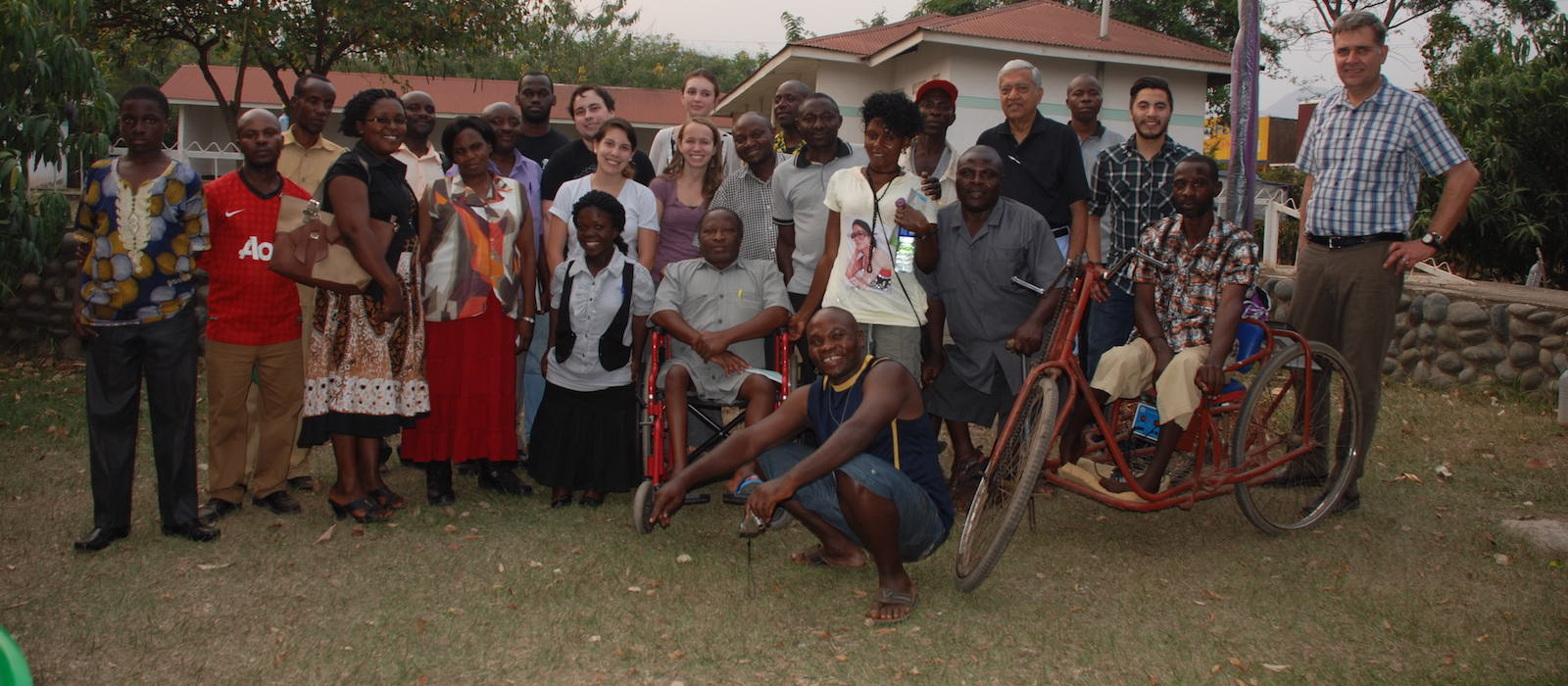With Thanks to Our Funders
IDRC: International Development Research Centre
The IDRC, a branch of Canada’s foreign affairs and development efforts, focuses on funding creative innovation and the spreading of knowledge-based solutions with the goal of creating sustainable, empowering change in the lives of people in the developing world. Our team was thrilled to receive funding from the IDRC from 2012-2014. This funding supported our objective to design innovative and cost effective devices for persons with disabilities that could be built locally in Kasese, Uganda.
The Mbili-Kwa-Moja: Two-in-one wheelchair project is most recently funded by the Swedish foundation Promobilia. The Promobilia Foundation’s goal of further development and improvement of technical aids for people with disabilities aligned well with the motivation and goals of this research project, particularly when it came to this project’s intention to create any designs for the wheelchair open source. Part of Promobilia’s mandate is to ensure that the projects and products it supports are produced in a way that is accessible for those who need them most. The Mbili-Kwa-Moja project is grateful for the Promobilia Foundation’s support in our aim to bring greater accessibility and autonomy to those living with disabilities in Uganda’s Kasese region.
Our Partners
This project was originally developed with the support of CanUgan Disability Support, an Ottawa-based foundation that works with the Kasese District Union of Persons with Disabilities (KADUPEDI). Through CanUgan, the Mbili-Kwa-Moja project found its purpose in the Kasese region of Uganda, one of the poorest regions in the East-African country. CanUgan’s work in the Kasese region began with a campaign to provide hand-operated tricycles for people with disabilities in the area after it was realized that improved physical mobility can have a drastic impact on the economic mobility of those living with physical disabilities. Individuals with access to these tricycles were able to pursue vocational training and gain access to markets to sell their goods. With CanUgan, the Mbili-Kwa-Moja project is striving to produce the tricycles locally.
Research Education Accessibility and Design (READ) Initiative
Carleton University’s READ Initiative supports innovation in research, design, and development that works towards improving accessibility and inclusivity. The READ Initiative works to build on Carleton University’s efforts to make its campus and its learning accessible to all. The READ Initiative wants to expand Carleton’s spirit of accessibility to the Ottawa community and beyond. The READ Initiative’s emphasis on universal design as a key element in creating an accessible world aligned well with the goals and philosophy of our project. The READ Initiative originally connected Carleton’s School of Industrial Design with CanUgan, kickstarting a crucial partnership for this project.
KADUPEDI
KADUPEDI stands for the ‘Kasese District Union of Persons With Disabilities’. KADUPEDI, a non-governmental organization, was founded in 1996 by eight individuals living with disabilities in the Kasese district of Uganda. KADUPEDI advocates on behalf of persons living with disabilities in the region by presenting a unified advocacy effort. KADUPEDI is involved in lobbying for the rights of persons with disabilities, working for the economic empowerment of people with disabilities, researching and documenting information on issues of disability, and community-based rehabilitation. KADUPEDI, in association with CanUgan, has been instrumental in assisting Carleton’s students and researchers work collaboratively with locals in Uganda.
